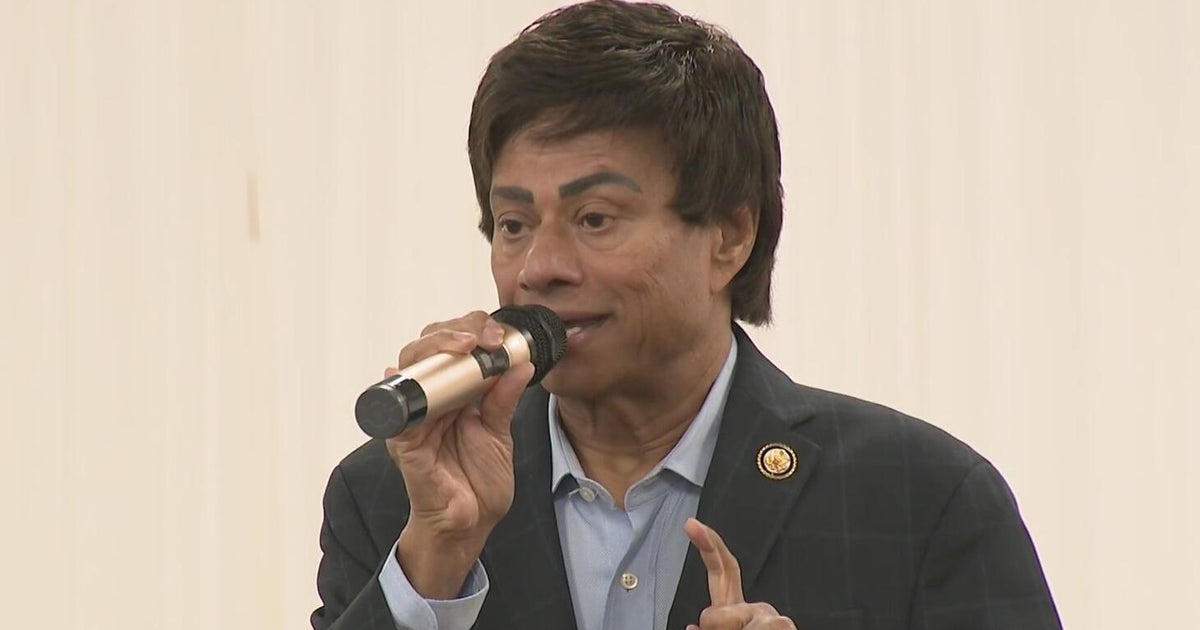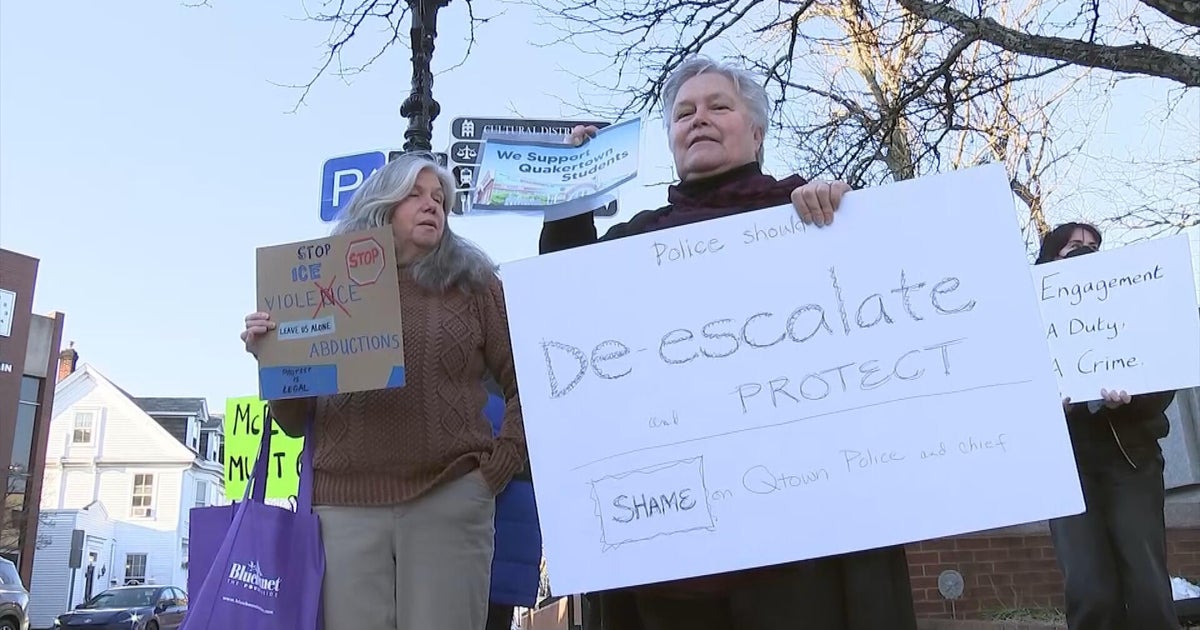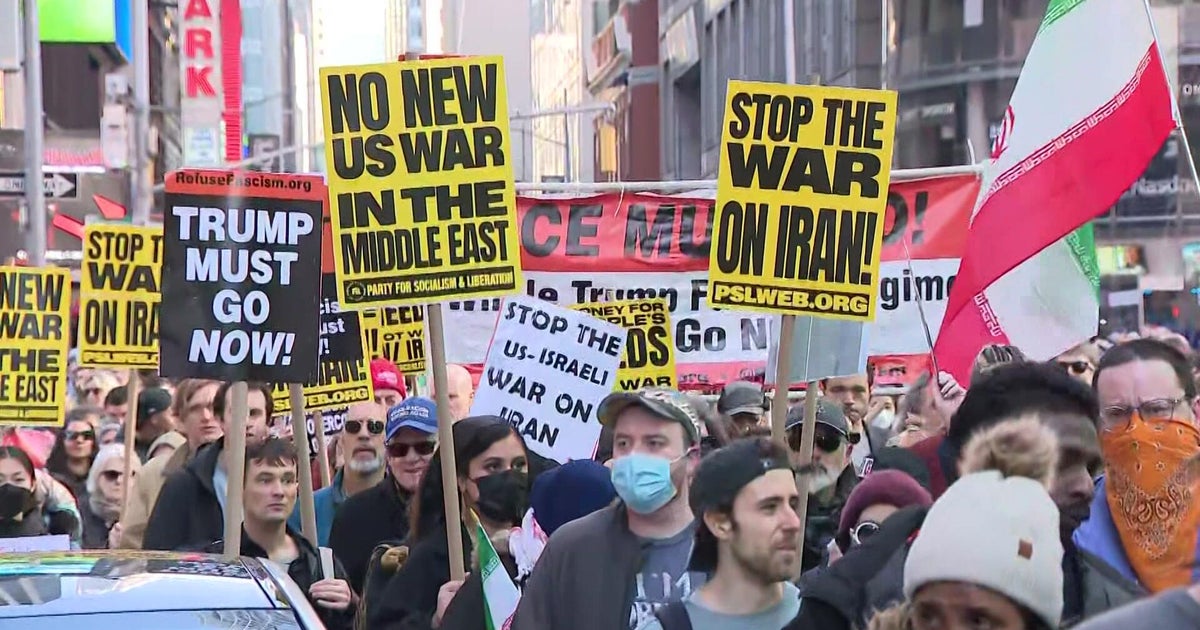Mayor: Torch-lit protest in Charlottesville, Va. “harkens back to the days of the KKK”
CHARLOTTESVILLE, Va. -- A group that included a well-known white nationalist carried torches and chanted "you will not replace us" at a Saturday evening protest in Virginia over plans to remove a monument of a Confederate general.
A large counter-protest was held Sunday, says CBS Charlottesville affiliate WCAV-TV.
The Saturday protesters called on officials to halt the removal of a Gen. Robert E. Lee statue in Charlottesville and were swiftly condemned by the city's mayor, who said the event appeared to harken "back to the days of the KKK."
Chanting "Russia is our friend," the group lit torches at Lee Park -- named after the general -- in an effort, protesters said, to presere European-American heritage, WCAV reports.
Among those at the protest was Richard Spencer, a while nationalist who popularized the phrase "alt-right" and is a leading figure in a fringe movement that has been described as a mix of racism, white nationalism and populism.
"We will not be replaced from this park," Spencer told the crowd at a different rally held hours earlier in Charlottesville on Saturday. "We will not be replaced from this world. Whites have a future. We have a future of power, of beauty, of expression," he said.
Spencer, an outspoken supporter of President Trump, hosted a postelection conference in the nation's capital last November that ended with audience members mimicking Nazi salutes after Spencer shouted, "Hail Trump, hail our people, hail victory!" Spencer also has advocated for an "ethno-state" that would be a "safe space" for white people
Charlottesville Mayor Mike Signer said in a statement that Saturday's protest was either "profoundly ignorant" or meant to instill fear in minorities "in a way that harkens back to the days of the KKK."
"I want everyone to know this: We reject this intimidation," Signer said in a statement. "We are a welcoming city, but such intolerance is not welcome here."
He said it reminds him of the country's worst chapters in history. "I think it was meant to inspire fear and even terror with our vulnerable populations," said Signer, according to WCAV.
Erich Reimer, chairman of the Charlottesville Republican Party, said in a statement that the "intolerance and hatred" that the protesters are seeking to promote is "utterly disgusting and disturbing beyond words," The Daily Progress newspaper reported.
Sunday's rally, also in Lee Park, drew more than 100 people, WCAV says.
The demonstrators said Spencer's group has no business being in Charlottesville and that all lives matter.
"This is Charlottesville," said Don Gathers, former head of a Blue Ribbon Commission established by the city to make recommendations on what to do with the Confederate monuments. "We're black, we're white, we're Asian, we're Latino, we're LGBTQ, and this is our town."
"You will not come in here and dictate anything through us, through threats, and intimidation," he added.
The Charlottesville City Council voted last month to sell the Lee statue, but a judge has agreed to a temporary injunction that blocks Charlottesville from moving the statue for six months, The Daily Progress reported. The city also plans to rename Lee Park and another park named after another famed Confederate, Thomas "Stonewall" Jackson.
The debate over Confederate symbols has swept through cities across the South since the 2015 massacre of nine black parishioners at a South Carolina church. The gunman was a self-avowed white supremacist.
In Virginia, Republican Corey Stewart's vocal support for the Lee statue also has pushed the issue into the state's high-profile race for governor. Stewart has pledged that no Confederate monuments would be removed if he is elected.
In New Orleans, workers on Thursday removed a statue of Confederate President Jefferson Davis, the second of four monuments to Confederate era figures the city has voted to remove. Late last month, the city removed a 35-foot tall granite obelisk tribute to whites who battled a biracial Reconstruction government installed in New Orleans after the Civil War.



